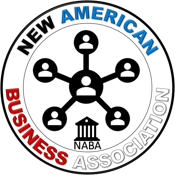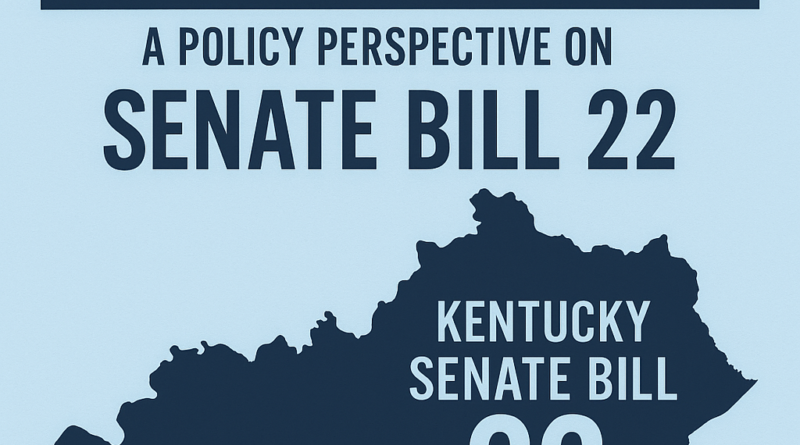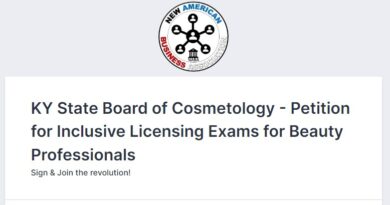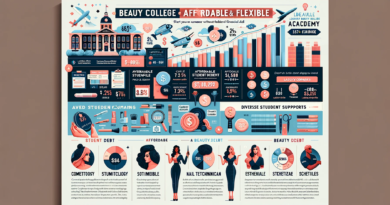Balancing Public Health and Economic Growth: A Policy Perspective on Senate Bill 22
New American Business Association Inc.
Introduction
The New American Business Association Inc. (NABA), a nonprofit organization dedicated to supporting entrepreneurial growth, responsible regulation, and equitable economic opportunity, offers this article as a neutral, research-based perspective on the implementation of Kentucky Senate Bill 22 (SB 22). While public health and safety must always be protected, NABA cautions that overregulation or disproportionate enforcement may stifle business creation, disincentivize licensing, and harm Kentucky’s economy. Drawing on data and industry insight, this report highlights the need for a balanced approach that uplifts both consumers and licensed businesses.
Understanding SB 22
SB 22, signed into law in 2025, enhances Kentucky’s oversight of cosmetology-related businesses. Among its most impactful provisions is a new statutory clause under KRS 317A.020(8)(b), which states:
“It shall be deemed an immediate and present danger to the health and safety of the public if it is documented and verified that a licensee knowingly employs or utilizes the services of an unlicensed individual.”
This provision enables the Kentucky Board of Cosmetology (KBC) to immediately close salons or establishments upon identifying violations. Other potential consequences include fines, license probation, or permanent revocation (Kentucky General Assembly, 2025).
Public Health Protection: The Original Goal
NABA recognizes the public safety rationale of SB 22. Unlicensed practitioners may lack proper training, exposing clients to risks such as infection, allergic reactions, or skin damage. Licensing exists to ensure that professionals meet health and sanitation standards. From this lens, the law empowers the state to act swiftly against dangerous or negligent behavior (U.S. Bureau of Labor Statistics, 2023).
Unintended Consequences for Licensed Businesses
However, early enforcement has revealed significant unintended effects. Licensed salons—already subject to inspection and sanitation rules—may now face closure for technical infractions or undocumented hiring errors. This poses a disproportionate risk to small business owners who otherwise operate safely and ethically. Public inspection data shows that over 94% of Kentucky salons passed health inspections with no violations between 2021 and 2023 (Kentucky Board of Cosmetology, 2024).
A core concern is that enforcement has shifted from targeting rogue, underground salons to penalizing legitimate, tax-paying, and licensed businesses. Many owners report fear of overzealous inspections, inconsistent penalties, or having their licenses jeopardized over misunderstandings or paperwork lapses (Legislative Oversight Report, 2024).
Supply and Demand in the Beauty Industry
The beauty industry in Kentucky is facing a workforce shortage in key specialties such as nail technology, esthetics, lash extensions, and threading. Nationally, the demand for manicurists and skincare specialists is projected to grow 10%–22% over the next decade, far outpacing the general labor market (U.S. Bureau of Labor Statistics, 2023).
In Kentucky, cosmetologists make up over 78% of beauty licenses, yet many are not practicing. Meanwhile, only 16% are licensed nail techs and just 6% estheticians—despite booming demand for their services (Kentucky Board of Cosmetology, 2024). Clients frequently wait weeks for appointments or turn to unlicensed providers due to lack of availability.
Economic Impact of Overregulation
Each licensed beauty graduate adds an estimated $20,000–$50,000 in income to Kentucky’s economy annually. Graduates who open salons create establishments worth $500,000 to $1 million or more, generating jobs, rent, retail revenue, and taxes (Louisville Beauty Academy, 2024).
Yet many students and business owners report delays in receiving state licenses due to administrative backlogs. Some must wait months for inspections, paperwork, or approval—delaying job starts, salon openings, and local revenue (Legislative Oversight Report, 2024).
Licensing as a Public Good, Not a Punishment
Licensing should serve as a public benefit—validating skill, promoting safety, and enhancing consumer confidence. But when enforcement feels punitive, it deters participation. Licensed salons are easier to inspect and regulate. Underground operators—who face few barriers and little scrutiny—present far greater risk. Enforcement should target those operating outside the system, not discourage those within it (New American Business Association Inc., 2025).
The Role of Consumer Choice
NABA believes in the intelligence and discretion of consumers. When properly informed, customers make thoughtful decisions about where to spend their money. Government should ensure transparency and safety but allow the market to reward businesses that meet high standards. Overregulation, by contrast, removes jobs, reduces options, and punishes entrepreneurship.
A Call for Balanced Policy
We encourage lawmakers to support enforcement strategies that prioritize real health risks while supporting job creation. Louisville Beauty Academy, a state-accredited, family-oriented beauty college, exemplifies a training institution that supports compliance, ethics, and economic opportunity. While LBA takes no policy position, its experience with immigrant, minority, and working adult students makes it a vital voice in the broader policy conversation.
Conclusion
Public health must be protected. But enforcement must also be fair, constructive, and aligned with Kentucky’s economic goals. Licensed businesses are not the enemy—they are job creators, tax contributors, and safety partners. SB 22 can be enforced in a way that respects all three branches of government: executive, legislative, and judicial. With thoughtful leadership, Kentucky can balance safety, fairness, and economic prosperity.
References
Kentucky Board of Cosmetology. (2024). Annual Inspection Report 2021–2023. https://kbc.ky.gov
Kentucky General Assembly. (2025). Senate Bill 22 full text. https://apps.legislature.ky.gov/record/25rs/sb22.html
Legislative Oversight Report. (2024). Findings on Licensing Delays and Administrative Backlog in the Kentucky Board of Cosmetology.
Louisville Beauty Academy. (2024). Graduate Outcomes and Economic Impact Report.
New American Business Association Inc. (2025). Testimony on Licensing Equity and Small Business Sustainability.
U.S. Bureau of Labor Statistics. (2023). Employment Projections for Personal Appearance Workers: 2023–2033. https://www.bls.gov




